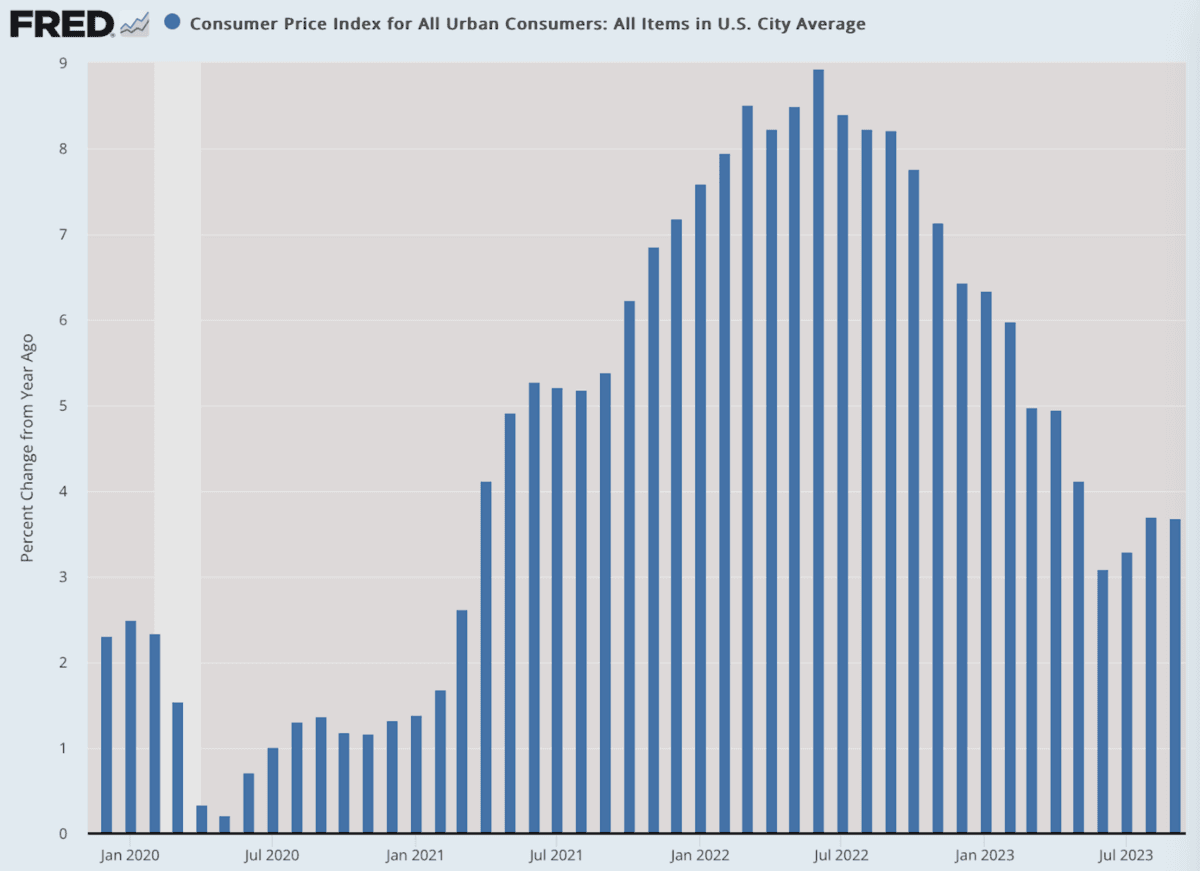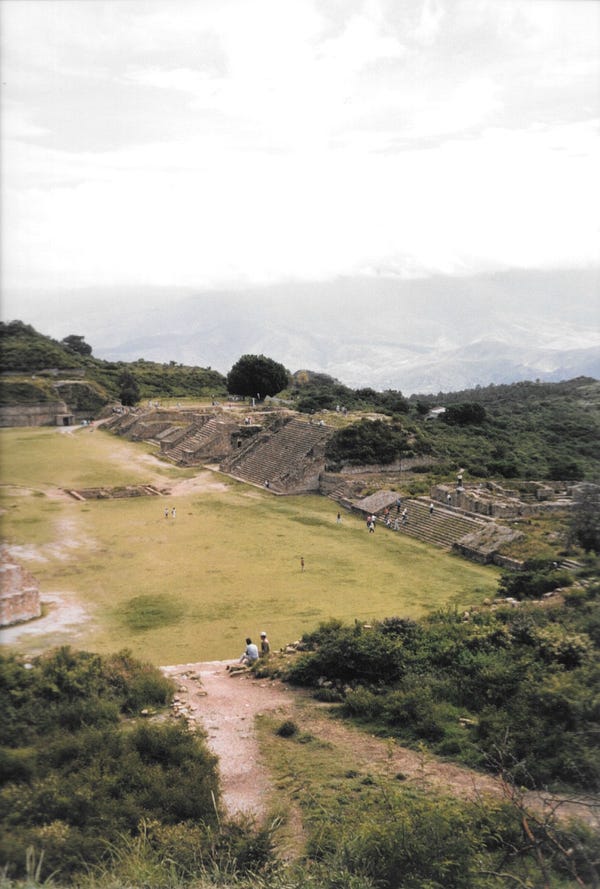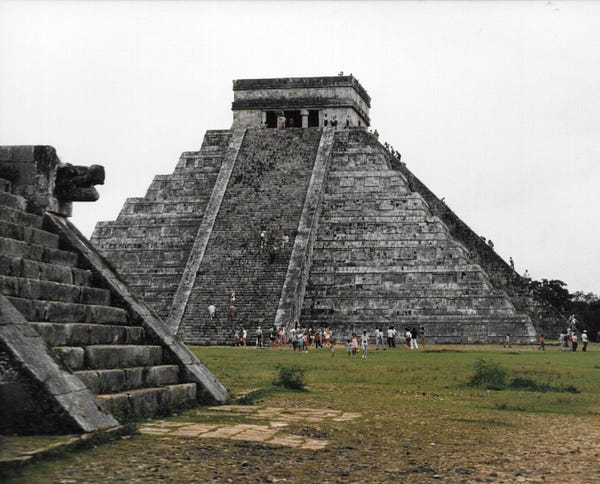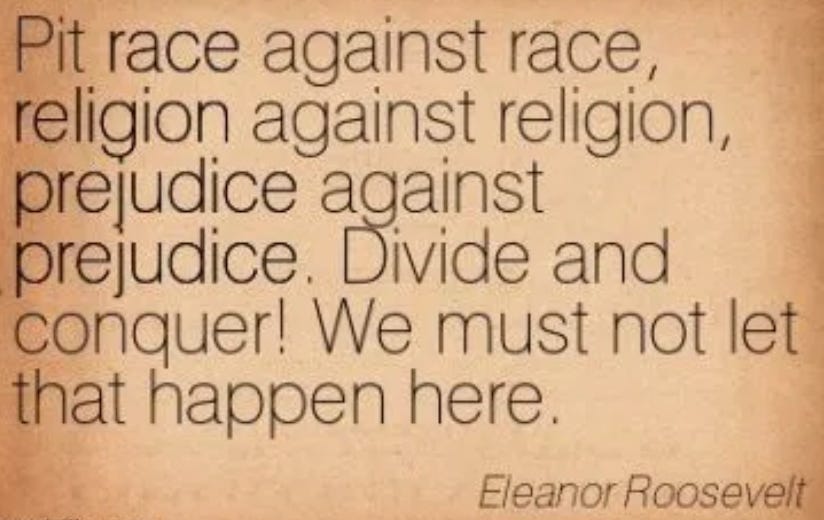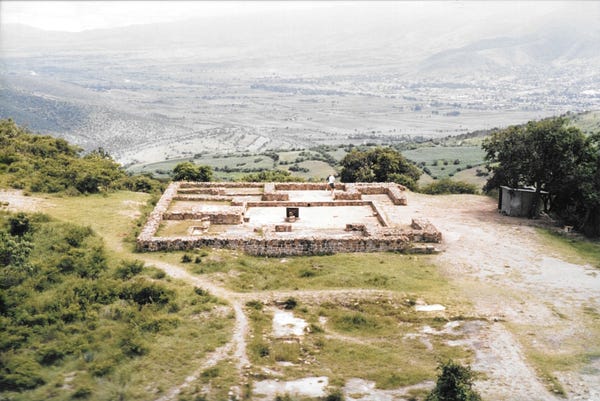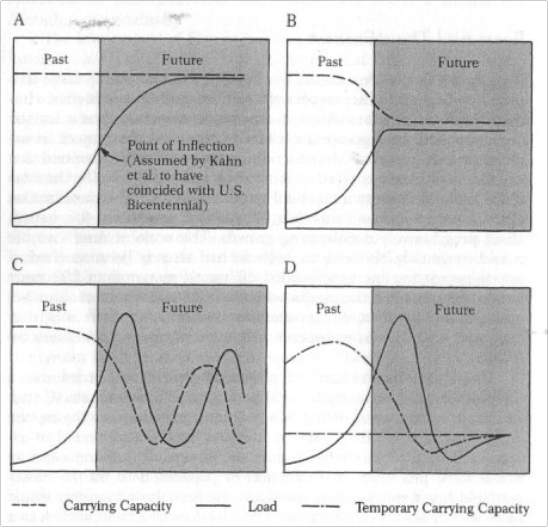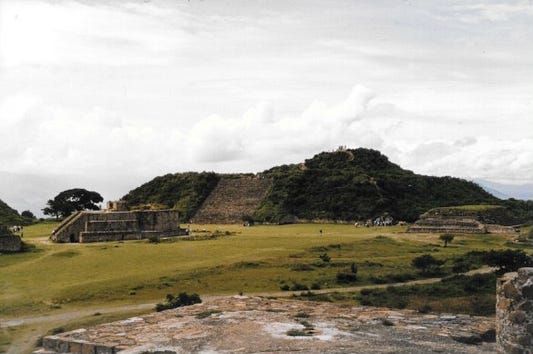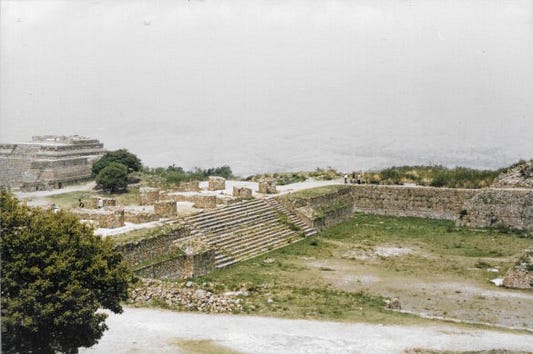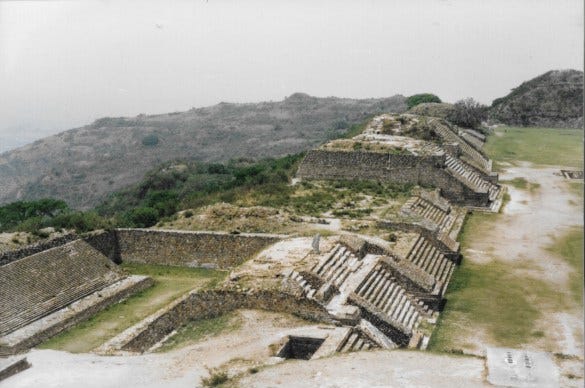I must begin by going back to a passage from an article I cited in the introductory ‘essay’ by Megan Siebert and William Rees: “We begin with a reminder that humans are storytellers by nature. We socially construct complex sets of facts, beliefs, and values that guide how we operate in the world. Indeed, humans act out of their socially constructed narratives as if they were real. All political ideologies, religious doctrines, economic paradigms, cultural narratives — even scientific theories — are socially constructed “stories” that may or may not accurately reflect any aspect of reality they purport to represent. Once a particular construct has taken hold, its adherents are likely to treat it more seriously than opposing evidence from an alternate conceptual framework.”[3]
The following is my story that I’ve developed over the past 10+ years in reading relatively extensively and reflecting upon a variety of other stories about our past, present, and future. I am not SO confident in it that I would wager heavily in favour of it being the ‘truth’ — I think it’s close but I also believe that the complexities involved in attempting to understand exactly what is happening is far beyond human comprehension (and certainly mine). Plus my view changes periodically with new information/interpretations. The generality of it tends to remain but the specifics alter; and the more I learn, the more assured I am that my understanding is still quite rudimentary[4]. And then there’s the impossibility of making accurate predictions about how the future will unfold. I am relatively confident that such prognostications are completely beyond the scope of human cognition (even with the aid of computers) given the incalculable non-linear feedback loops and emergent phenomena that exist in complex systems — a single, minuscule faulty base assumption can send the trajectory of any calculation sideways in totally unexpected ways.
Anyways, here is my story beginning with a brief review of ‘collapse’ and overshoot:
Humans are susceptible not only to sociopolitical collapse[5] but collapse of its population via a massive die-off due to ecological overshoot[6]. Both seem inevitable at this point in our evolution[7]. And both are extremely anxiety-provoking regardless of whether one has moved through Kubler-Ross’s Stages of Grief[8] and reached the final stage of acceptance or not.
Let’s begin by looking at what ‘collapse’ means from the perspective of archaeologist Joseph Tainter, who summarises his perspective near the beginning of his text, The Collapse of Complex Societies, on the subject.
“Collapse…is a political process. It may, and often does, have consequences in such areas as economics, art, and literature, but it is fundamentally a matter of the sociopolitical sphere. A society has collapsed when it displays a rapid, significant loss of an established level of sociopolitical complexity…[It manifests itself] as:
· a lower degree of stratification and social differentiation;
· less economic and occupational specialization, of individuals, groups, and territories;
· less centralized control; that is, less regulation and integration of diverse economic and political groups by elites;
· less behavioural control and regimentation; less investment in the epiphenomena of complexity, those elements that define the concept of ‘civilization’: monumental architecture, artistic and literary achievements, and the like;
· less flow of information between individuals, between political and economic groups, and between a center and its periphery;
· less sharing, trading, and redistribution of resources;
· less overall coordination and organization of individuals and groups;
· a smaller territory within a single political unit.”[9]
While Tainter’s analysis of sociopolitical collapse is startling, given that virtually every experiment we have attempted with complex societies over our pre/history have failed and thus our hyper-complex one is likely even more susceptible to the primary factor that leads to its eventual demise (i.e., diminishing returns on investments in complexity), the work of William Catton Jr. on the ecological overshoot of the human species is even more anxiety-provoking[10].
Catton argues that our leveraging of fossil fuels has allowed humanity to expand well beyond the natural carrying capacity of the planet and mirrors quite clearly the type of exploitation that is observed in species that invariably ‘bloom and crash’.
And while in our denial of this inevitability we have created stories that we can avert such a future, Catton asserts that “habits of thought persist…people continue to advocate further technological breakthroughs as the supposedly sure cure for carrying capacity deficits. The very idea that technology caused overshoot, and that it made us too colossal to endure, remains alien to too many minds for ‘de-collosalization’ to be a really feasible alternative to literal die-off. There is a persistent drive to apply remedies that aggravate the problem.”[11]
In fact, he recognises that “…believing crash can’t happen to us is one reason it will. The principles of ecology apply to all living things. By supposing that our humanity exempts us, we delude ourselves…whatever the species, irruptions that overshoot carrying capacity lead inexorably to die-offs. Irruptions can happen to any species that gains access to a previously inaccessible but highly suitable habitat. All it takes is for the habitat to contain an abundance of whatever resources are needed by the invading species, and for there to be little population-checking pressure from predators and little or no competition from other species having similar niche requirements and living in the same area.”[12]
As Catton concludes, when overshoot has occurred there is no avoiding the crash.
Cutting to the chase, we have a globalised world that can be expected to experience sociopolitical collapse (or is already experiencing) and/or a massive overshoot die-off that puts everything at risk, for everyone; but especially for those who live within so-called ‘advanced economies’ that have come to depend fully and completely upon the energy-averaging systems of global trade and its complex and fragile supply chains[13].
Talk about anxiety-provoking!
I have been ‘searching’ for a few poignant thoughts on how to conclude these handful of contemplations on the psychological mechanisms I’ve outlined and how this may impact our thinking (or, at least, mine) about an unwritten and unknowable future. And I think, perhaps, the comment I left at Tom Murphy’s Do the Math site in response to an article he posted recently kind of hits the nail on the head of where my thoughts have led me (at this point in my journey). The comment is in bold with some further connective ideas added:
I’m coming to three (of many) rather ‘anxiety-provoking’ conclusions given everything. First, that our leveraging of that one-time cache of fossil energy has expedited our journey into ecological overshoot — this being our fundamental predicament that is signalling its presence in all the ‘problematic’ symptoms we are experiencing.
Our primary predicament, then, seems to be ecological overshoot. The sociopolitical collapse that Tainter attributes to diminishing returns on investments in complexity appears to resonate with a society’s tendency to overshoot its carrying capacity, be it local, regional, or global. When biophysical limits of the supportive and accessible resources (given the technology of the time) are breached, diminishing returns on investments in complexity begin to arise. Eventually, such diminishing returns hits a point where participants in the society begin to make the economic choice to abandon support for it as the previous benefits gained from living with such complexities falter and no longer make the investments worthwhile. The sociopolitical system cannot function for long without support from the masses — it eventually ‘collapses’.
The unavoidable consequence of such overshoot in our current hypercomplex, globalised society is likely a massive die-off of our species as Catton warns given the fact that the vast majority of humans no longer possess the skills and/or knowledge of basic survival skills such as the procurement of potable water, local food production, and maintenance of regional shelter needs. In fact, many of today’s communities exist in regions where such resources cannot be acquired and they depend entirely upon fragile and complex long-distance supply chains. In the past, most disenchanted people simply migrated and took up existence outside of the sociopolitical realm that was disintegrating. Such an option for the vast majority, if not all, is perhaps completely out of the question nowadays.
Second, our penchant for denial of anxiety-provoking situations is leading us to ignore our predicament and cling to optimistic narratives — even if completely false (or misleading) in nature.
Add to the significant anxiety created by our predicament the profound sense of loss involved when one’s world suddenly moves sideways, particularly in unsuspecting ways, or when a loss is ‘expected’, and we experience the grieving stages Kubler-Ross identified and described — particularly denial, anger, and bargaining.
Moreover, the research around anticipatory loss suggests that the stages of grief that one experiences can actually be much more intense when one is expecting such loss than after the actual loss. There can be greater anger, more significant loss of emotional control, and atypical grief responses[14].
Most importantly it seems that the initial stage of grief, denial (especially of death and anything unpleasant) has been argued to be the defining evolutionary trait that makes us human[15], so it tends to be the most common response by people.
Wanting to avoid/reduce the pain that accompanies the resulting anxiety we search for evidence to confirm any ‘positive/pleasurable’ beliefs we tend to hold as ‘correct’ and deny and/or rationalise away the information that is challenging our ‘faith’. And what could be more anxiety-provoking than the impending collapse of one’s complex society or a massive die-off? As crises erupt and challenges our belief systems, we will search for evidence that any decline/fall is either far off in the distant future, nonsensical, can be ‘solved’ (especially via our ingenuity and technological prowess), the fault of some ‘enemy’ or opposition group within our domestic ranks (or supernatural entity), etc..[16]. This is typical ‘bargaining’ behaviour.
Third, our ruling elite are themselves leveraging our ‘fears’ to do what they do best: seeking to maintain/expand the power/wealth structures that exist in complex societies and provide them their privileged positions; and our tendency to defer to ‘authority’ and desire to alleviate anxiety make us susceptible to the narratives they create, such as human ingenuity and technology will allow us to continue to chase the perpetual growth chalice to infinity and beyond.
It seems clear to me that ‘collapse’ puts directly in its crosshairs the power/wealth structures that support the ruling class. I’ve said a lot about this in previous articles but feel compelled to share a bit more.
I have little doubt that the ruling class will take advantage of all of these well-known psychological mechanisms in their ongoing and ever-present quest to maintain/control the wealth-generation/-extraction systems that provide their revenue streams and privileged status. Narrative control, perhaps one of if not the most important mechanism for sustaining the status quo societal structures, will be ramped up continuously. ‘Threats’ will be vilified. Myths will be created and/or amplified. Means of extending and pretending will likely dominate as the elite kick-the-can-down-the-road as long as they can.
We need to not only be aware and conscious of these psychological mechanisms that influence our beliefs and thus actions, but actively engaging ‘countermeasures’ by resisting our automatic responses (e.g., ‘leaders’ and their courtiers/sycophants/bureaucrats are always correct and/or have the best interest of the people/society at the top of their motivations) and reflecting upon/challenging our beliefs/thought processes periodically. We also need to admit that much of what we believe to be true/factual may, in fact, be conditioned responses and/or ‘programmed’ ideas established by the ruling elite[17].
Cognitive framing in which the way we perceive/interpret events is established for us, perhaps through propaganda or the creation of an Overton Window. We are kept from thinking about alternatives to the established options and made to believe the offered ‘solutions’ are the only ones to consider…thinking outside the box is not allowed, especially if it challenges the status quo power/wealth structures. I expect the totalitarianism that is increasingly defining our sociopolitical systems worldwide[18] to expand significantly as we slide down the Seneca Cliff of resource contraction (especially energy).
The collapse that always accompanies overshoot seems baked in at this point with little if anything we can do about it.
Personally, I’d like to see our dwindling fossil fuels dedicated to decommissioning safely those significantly dangerous complexities we’ve created (e.g., nuclear power plants, biosafety labs, chemical storage, etc.) and relocalising as much potable water procurement, food production, and regional shelter needs as possible rather than attempting to sustain what is ultimately unsustainable given the fossil fuel inputs necessary. Perhaps, just perhaps. by doing these things a few pockets of humanity (and many other species) can come out the other side of the bottleneck we’ve created for ourselves.
